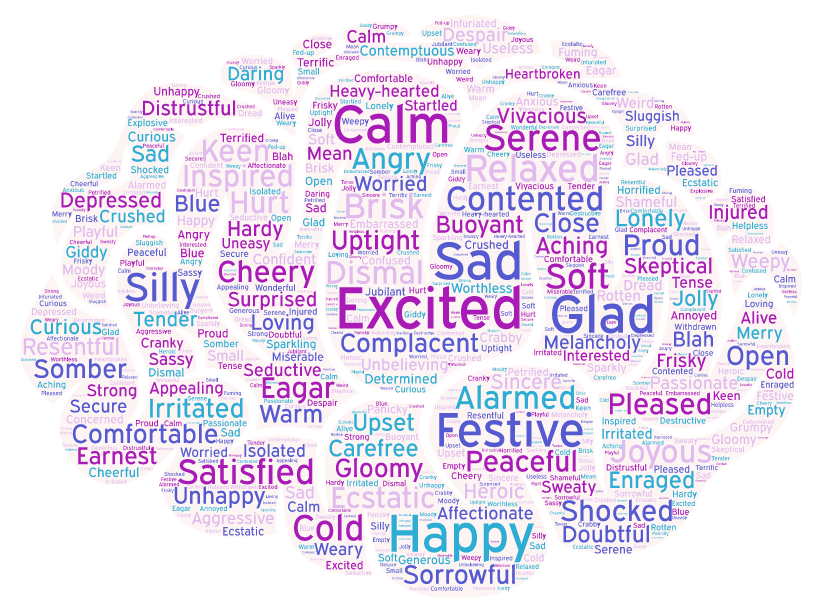“Emotional intelligence is the ability to make emotions work for you, instead of against you.”
~ Justin Bariso, in an article for Inc. Magazine
Emotional intelligence, also referred to as EQ, is the awareness of one’s own emotions and those of other people, as well as the ability to manage them. EQ was first introduced by psychologists Peter Salovey and John D. Meyer over 20 years ago and has been a hot topic ever since – mostly because the assumption for years was that IQ was the main predictor of success. However, research has found that people with average IQs often outperform those with higher IQs, with the main differentiator often being EQ. EQ is an important skill to hone in your personal and professional life. It involves recognizing and controlling your emotions, mood, behaviors and impulses.
The Difference Between IQ and EQ
IQ represents your ability to learn and is the same at age 20 as it is at age 50, whereas EQ is a skill set that can be learned and improved with practice. IQ and EQ aren’t connected; you can’t predict someone’s EQ based on their IQ. EQ isn’t the same as personality either. Personality is hardwired and doesn’t really change throughout your lifetime; you’re born with an inclination toward being introverted or extroverted, for example. Personality doesn’t predict EQ either. Just because you’re extroverted and energized by people doesn’t mean you’re adept at handling complex social situations or nurturing relationships.
Four Aspects of EQ
EQ impacts how we make decisions, behave, navigate social complexities and manage relationships. There are two sides of this skill – personal competence and social competence. Personal competence involves being able to understand and label one’s emotions accurately. People with high EQ roll with the punches and understand how their mood and behavior affect others. Social competence includes being aware of others’ emotions and managing relationships.
Two Components of Personal Competence
Self-awareness: The key aspect of self-awareness is being able to understand what you’re feeling in the moment, rather than after the fact. It requires snapping out of autopilot and being present. People with high EQ recognize what emotions they’re feeling, as well as the impact those emotions have on their behavior. When people are self-aware, they are able to identify their emotional triggers and know when to ask for help. Self-awareness also involves being tuned into one’s values, beliefs, motivations, goals, strengths and weaknesses. Mindfulness can play a role in elevating your self-awareness because taking time for this practice can help you tune into your emotions.
Self-regulation: Self-awareness is the first step; then you need to be able to evaluate and control your emotions and impulses. While you may not have control over when emotions surface, you have a choice in how you respond. Determine what’s behind an emotion and how you can effectively deal with it. It’s imperative to handle feelings appropriately without overreacting. Self-regulation includes controlling impulses, acting in a way that is consistent with your values, taking responsibility for your actions, being flexible with change, and remaining open to new ideas. People with high EQ understand how their emotions impact others and how others’ feelings can influence their own mood (and that of a group). They are acutely aware of how contagious and energizing a positive attitude can be to those around them and make it a point not to let another person’s negative mood bring them down.
Two Components of Social Competence
Social awareness: This is the ability to read others’ emotions – based on their words, body language and actions – and understand what’s really happening. For example, determining if a loved one is really upset with you for something you said or did, or is irritable because they had a rough day at work. Understanding what’s driving someone’s behavior can help you work with them.
Relationship management: People with high EQ use their skills to read and understand other people’s emotions to navigate social situations and nurture relationships.
Conclusion
Emotions are powerful drivers in our lives. They provide data for what’s going on underneath the surface. When they aren’t dealt with, they put stress on our bodies and minds. In fact, people with low EQ are more likely to turn to less effective (often harmful) coping mechanisms, as well as experience anxiety, depression and substance abuse. While you can’t control when emotions arise, you can control your reactions to your feelings. Building your EQ can help you identify and address difficult situations before they escalate.
An important lesson you’ll learn as you tune into emotional intelligence is that your choices matter. Each day you have the choice to impact the world with your thoughts, feelings and actions. How you choose to respond to your emotions and the situations you face affect your life and the lives of those around you. And if you don’t understand your own feelings and behaviors, it’s almost impossible to understand others. The relationship you have with both yourself and others is central to the life you lead.
www.psychologytoday.com/basics/emotional-intelligence
www.ihhp.com/meaning-of-emotional-intelligence
www.talentsmart.com/about/emotional-intelligence.php
psychcentral.com/lib/what-is-emotional-intelligence-eq/
www.entrepreneur.com/slideshow/299452
www.theatlantic.com/health/archive/2014/01/the-dark-side-of-emotional-intelligence/282720/
www.inc.com/travis-bradberry/are-you-emotionally-intelligent-here-s-how-to-know-for-sure.html
www.inc.com/justin-bariso/the-10-commandments-of-emotional-intelligence.html
www.inc.com/justin-bariso/what-is-emotional-intelligence-exactly-heres-the-entire-concept-summed-up-in-1-s.html
hbr.org/2015/04/how-emotional-intelligence-became-a-key-leadership-skill
www.forbes.com/sites/travisbradberry/2014/01/09/emotional-intelligence/#54cf0f451ac0
www.forbes.com/sites/elanagross/2017/08/02/how-to-develop-a-strong-emotional-intelligence/#6f5ed50053e7
www.ncbi.nlm.nih.gov/pmc/articles/PMC4085815/
www.opm.gov/policy-data-oversight/assessment-and-selection/other-assessment-methods/emotional-intelligence-tests/
www.6seconds.org/
www.extension.harvard.edu/professional-development/blog/emotional-intelligence-no-soft-skill
appliedpsychologydegree.usc.edu/resources/articles/emotional-intelligence-in-the-workplace/
www.fastcompany.com/40434451/this-emotional-intelligence-test-was-so-accurate-it-was-creepy
www.headspace.com/blog/2017/08/21/emotional-intelligence-can-drive-success/
www.shrm.org/resourcesandtools/hr-topics/behavioral-competencies/leadership-and-navigation/pages/what-is-emotional-intelligence.aspx

